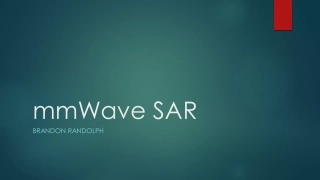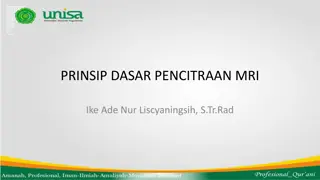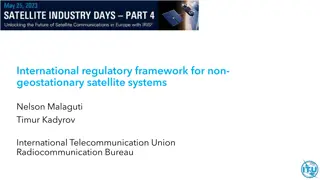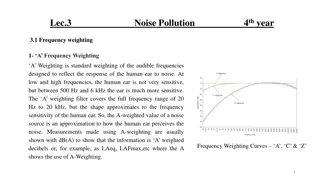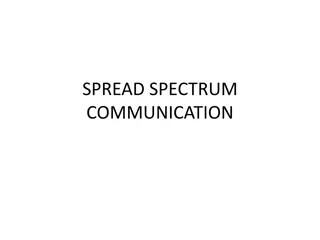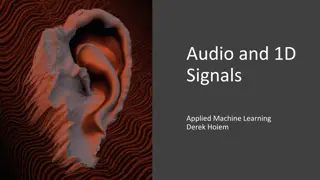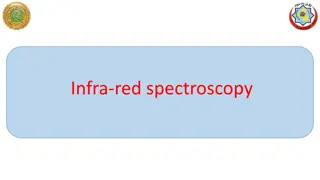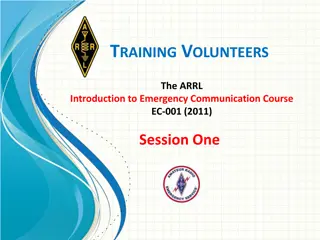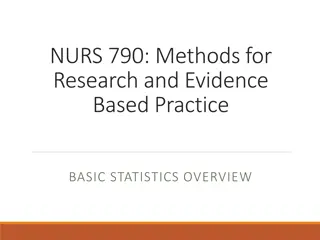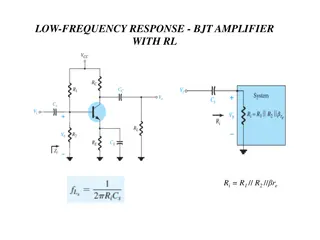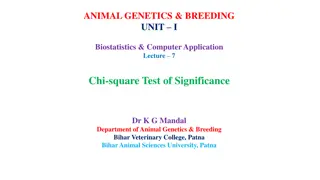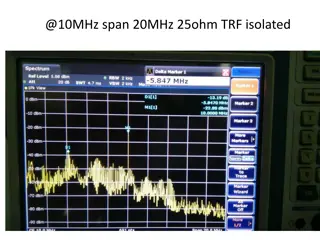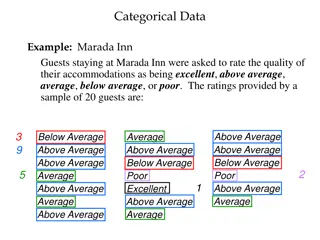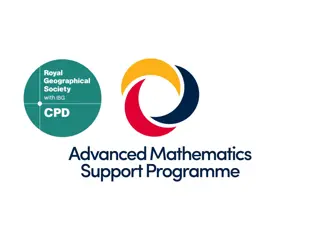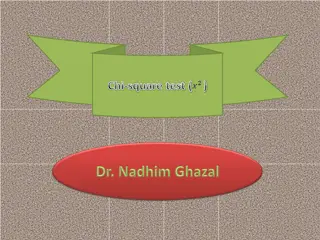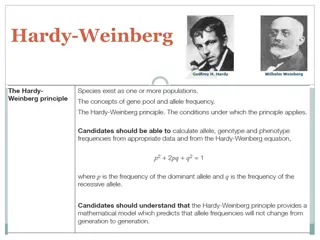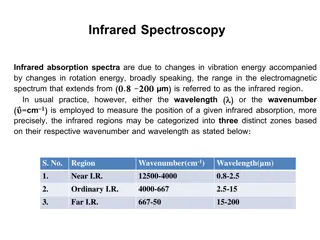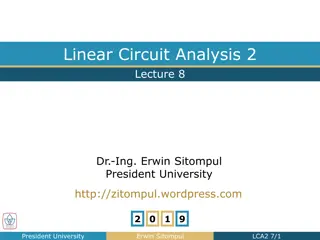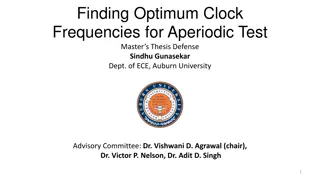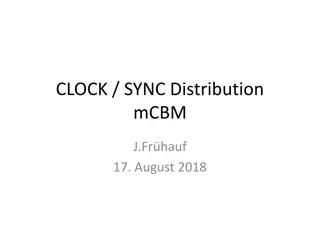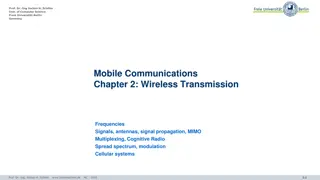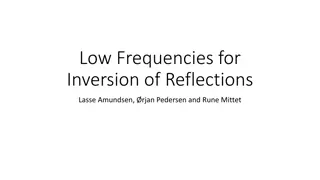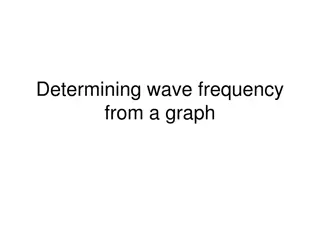mmWave SAR
The world of millimeter wave SAR, including its operating frequencies, system design, and applications such as personal security, ground imaging, automotive imaging, and 3D imaging.
6 views • 15 slides
Understanding Brain Waves: Frequencies and Behaviors
Brain waves are electromagnetic signals produced by the brain, categorized by frequencies into Delta, Theta, Alpha, and Beta waves, each associated with different states of consciousness and behaviors. These waves play a crucial role in our brain's energy utilization and overall functioning.
1 views • 11 slides
Weaverham High School
Weaverham High School offers two routes for Science GCSE - Combined Science Trilogy and Single Science. Each option includes specialized teaching in Biology, Chemistry, and Physics with different lesson frequencies. The exams are tiered, with Scientific skills forming a part of the assessment. Stude
1 views • 5 slides
Improving HER2 Targeting in NSCLC With Selective TKI
HER2 activation plays a crucial role in promoting tumor proliferation and survival in NSCLC. Driven by oncogenic downstream signaling pathways, HER2 overexpression and gene amplification lead to the formation of heterodimers and activation of key signaling cascades. Additionally, HER2 mutations are
0 views • 36 slides
A Student Exploration of the Global Impacts of Climate Change on Human Health
This research delves into the effects of climate change on human health, covering how a warming climate, changes in precipitation, and increased flooding frequencies impact various health aspects such as infectious diseases, nutrition, and mental health. The study provides a visual model illustratin
5 views • 17 slides
Scrolls:Rolling Flexible Surfaces for Wideband Wireless
Revolutionizing wireless communication, the Scrolls project introduces rolling flexible surfaces for wideband wireless applications. With the expectation of 30 billion wireless devices by 2025, the project emphasizes standards and frequencies such as Cellular, Wi-Fi, and IoT. By offering a standard-
2 views • 19 slides
Mastering Synchronizing of AC Power Generating Equipment in Renewable Energy Training Course
This module focuses on educating learners about the synchronization process of AC power producing equipment, including the differences between synchronous and induction generators, calculating generator frequencies, and understanding the operation of synchroscopes and the three light bulb method for
1 views • 38 slides
Basic Principles of MRI Imaging
MRI, or Magnetic Resonance Imaging, is a high-tech diagnostic imaging tool that uses magnetic fields, specific radio frequencies, and computer systems to produce cross-sectional images of the body. The components of an MRI system include the main magnet, gradient coils, radiofrequency coils, and the
2 views • 49 slides
International Regulatory Framework for Non-Geostationary Satellite Systems
Understanding the international regulatory framework for non-geostationary satellite systems, including coordination for protection of existing services, spectrum access/use laws, satellite frequencies and services, and mechanisms for protecting geostationary satellite orbits. The regulations aim to
2 views • 17 slides
Understanding Frequency Weighting in Noise Pollution Measurement
Frequency weighting is essential in noise pollution measurement to reflect how the human ear perceives noise. The A, C, and Z weightings are commonly used to represent different frequency responses. A-weighting covers the audible frequencies where the human ear is most sensitive, while C-weighting i
2 views • 7 slides
Understanding Spread Spectrum Communication
Spread spectrum communication is a favored technology in military and commercial applications due to its resistance to jamming and interception. By spreading signals over a wide range of frequencies, it enhances security through encryption and authentication, making it challenging for attackers to d
4 views • 17 slides
Understanding Audio and 1D Signals in Machine Learning
Explore the world of audio and 1D signals in machine learning through topics such as representing sound with frequencies, deep networks for audio analysis, and the common use cases of 1D time series data. Learn about signal analysis, frequency spectra, and the contributions of Jean Baptiste Joseph F
6 views • 40 slides
Business Research
Business research serves to find answers through a scientific process. Objectives include gaining familiarity, describing characteristics, determining frequencies, and testing hypotheses. Types of research encompass descriptive, analytical, applied, and fundamental categories, each serving distinct
0 views • 8 slides
Building a 40-Meter Turnstyle Antenna: Step-by-Step Guide
Learn how to construct a 40-meter turnstile antenna for improved signal coverage using detailed instructions, diagrams, and recommended coaxial cables. Discover the materials needed, calculate dipole lengths, set up the phasing line, and optimize performance for HF frequencies.
0 views • 17 slides
Young’s double slit
Explore various examples and whiteboard problems related to Young's double slit experiment, diffraction patterns, and interference of light waves. From calculating fringe distances to determining wavelengths and frequencies of light, these examples provide a comprehensive overview of optical phenome
5 views • 30 slides
Understanding Audiometric Worksheets: Frequency Mapping for Hearing Thresholds
Explore how audiometric worksheets represent hearing thresholds across frequencies, including patient details, equipment used, test results, and more. Learn about different audiogram forms, symbols used, and how to assess hearing loss type, degree, and laterality. Gain insights into interpreting aud
0 views • 58 slides
Understanding Infrared Spectroscopy and Molecular Vibrations
Exploring the fascinating world of infrared spectroscopy and molecular vibrations. Learn about the different regions of the infrared spectrum, Hooke's law, vibrational frequencies, and the types of molecular vibrations. Discover how bond strength, reduced mass, and wave numbers are interconnected in
0 views • 18 slides
Understanding Emergency Communication Systems for Volunteer Training
This content covers various topics related to emergency communication systems for volunteer training, including agency communication systems, government radio systems for police and fire departments, emergency medical radio systems, American Red Cross frequencies, and types of served-agency radio sy
2 views • 29 slides
Understanding Basic Statistics in Research and Evidence-Based Practice
Basic statistics play a crucial role in research and evidence-based practice. Descriptive statistics help summarize data, while inferential statistics make inferences about populations based on samples. Various types of statistics like hypothesis testing, correlation, confidence intervals, and signi
3 views • 15 slides
Analysis of Low-Frequency Response in BJT and FET Amplifiers
This analysis delves into the low-frequency response of BJT and FET amplifiers, examining the impact of various components such as resistors and capacitors on the cutoff frequencies. Detailed examples illustrate the calculation process for determining these frequencies based on specific parameters.
0 views • 18 slides
Understanding Chi-Square Test of Significance in Animal Genetics and Breeding
Chi-square test of significance, designed by Karl Pearson in 1899, is widely used in animal genetics and breeding to analyze departures of observed frequencies from expected frequencies. This test helps in assessing goodness of fit, independency in contingency tables, homogeneity of variances, and d
3 views • 25 slides
Frequency Response Analysis of Isolated Transmission Lines at Various Impedances and Frequencies
Explore the frequency response of isolated transmission lines at different impedances and frequencies, such as 25 ohms at 10MHz to 20MHz span, 50 ohms at 614MHz to 10MHz span, and more. Visual representations provided for in-depth analysis and understanding.
2 views • 4 slides
Enhancing Communication: The Role of Relay Services for Individuals with Hearing or Speech Disabilities
Explore the importance of telephone communication for individuals with hearing or speech disabilities, and how relay services facilitate communication through text transcription. Learn about the speed of transcription, VCO services, and the basic method of communication that is often taken for grant
0 views • 18 slides
Comparison Analysis of LMK04832 vs LMK0482x
General specifications comparison between LMK04832, LMK04828, LMK04821, and LMK04826 including parameters like VCO frequency range, maximum output frequency, input frequencies, PLL specifications, supply voltage, operating temperature, and output formats. Clock output formats, dividers, and delays d
0 views • 5 slides
Analysis of Categorical Data at Marada Inn and Pelican Stores
The analysis includes rating frequencies and relative frequencies for quality ratings at Marada Inn, as well as customer transaction data at Pelican Stores during a promotion. Graphs and tables summarize qualitative variables for evaluation and managerial reporting.
0 views • 28 slides
Understanding and Using the Chi-Squared Test in Geography
Chi-squared tests in geography are used to analyze associations between variables and goodness of fit to a distribution. This statistical method compares observed frequencies in a sample with expected frequencies. Learn how to apply the Chi-squared test through examples, such as investigating differ
0 views • 39 slides
Understanding the Chi-Square Test in Statistics
The Chi-square test is a fundamental statistical technique for analyzing count or frequency data. It is commonly used to determine if there is a significant difference between categorical variables like gender or disease type. The test relies on the Chi-square distribution and compares observed freq
2 views • 32 slides
Understanding Hardy-Weinberg Principle and Genetic Frequencies
Gene pool and allele frequencies play a crucial role in the Hardy-Weinberg Principle, a mathematical model predicting allele frequencies over generations. The principle outlines conditions like a large population, absence of mutations, random mating, and more. Equations such as p² + 2pq + q² = 1 h
0 views • 44 slides
Understanding Infrared Spectroscopy: An Overview of Vibration Energy and Spectral Regions
Infrared spectroscopy involves analyzing absorption spectra resulting from changes in vibration and rotation energy in molecules. The infrared region spans from 0.8 to 200 μm, with distinct zones categorized based on wavenumber and wavelength. Group frequencies and fingerprint regions offer detaile
1 views • 26 slides
Understanding Frequency Response in Passive Filters
Frequency response in passive filters plays a crucial role in signal processing by selectively allowing or blocking specific frequencies. This article explores the concept of passive filters, including lowpass, highpass, bandpass, and bandstop filters, their characteristics, and how they can be impl
0 views • 22 slides
Cryptanalysis and Decryption Techniques for Caesar Cipher
Learn how to decrypt Caesar cipher text using cryptanalysis techniques by analyzing letter frequencies and determining the secret key through character analysis. Explore methods to count character frequencies and find the most common letter to decipher encrypted messages.
0 views • 11 slides
Understanding Standing Waves in Physics
Standing waves in physics are periodic waves that result from the interference of reflected and inverted waves, creating nodes and antinodes along a medium. These standing wave patterns can be observed in vibrating strings, such as guitar strings, where specific frequencies produce distinct harmonic
0 views • 29 slides
Finding Optimum Clock Frequencies for Aperiodic Test
Finding the best clock frequencies for aperiodic testing in integrated circuits is crucial for reducing test time and costs. This study by Sindhu Gunasekar explores the use of aperiodic clock testing to optimize test cycles and minimize power dissipation, ultimately improving testing efficiency.
0 views • 29 slides
Clock Synchronization Distribution For Data Taking Systems
The content details the clock synchronization distribution system for data taking systems requiring specific clock frequencies for various subsystems to ensure synchronous data processing. It covers the setup, external clock relationships, and generation specifics involving different clock frequenci
0 views • 10 slides
Understanding Two-Way Tables and Probability
Two-way tables are used to display data collected from two different categories. By organizing data in a two-way table, you can find joint frequencies, marginal frequencies, and interpret the results. In this context, learn how to create two-way tables, calculate marginal frequencies, find joint fre
0 views • 15 slides
Understanding Gene Pools, Allele Frequencies, and Mutations in Population Genetics
Dive into the significance of gene pools and allele frequencies, exploring how mutations drive the emergence of new alleles. Learn about factors impacting allele frequencies like mutations, environmental pressures, genetic drift, and gene flow. Discover the types of mutations and their effects on po
0 views • 13 slides
Understanding Wireless Communication Frequencies and Regulations
Explore the world of wireless communication frequencies, signals, and regulations explained by Prof. Dr.-Ing. Jochen H. Schiller from Freie Universität Berlin, Germany. Discover the various frequency ranges from VLF to EHF, examples for mobile communication frequencies, and regulations in Europe, U
0 views • 44 slides
Low Frequencies for Inversion of Reflections
Exploring the use of low frequencies for inversion of reflections in seismic data processing. The presentation covers motivations for tau-p inversion, direct and indirect methods, and discusses the transformation of hyperbolic reflections into ellipses. Various inversion techniques, applications in
0 views • 15 slides
Hybrid Synthesizer Project Details and Specifications
Group 28 led by David Clapp, consisting of computer and electrical engineers, is working on a hybrid synthesizer project to address the lack of natural-sounding analog synthesizers in the industry. The project aims to create an electronic musical instrument combining analog tone generation with digi
0 views • 29 slides
Understanding Wave Frequency and Periodicity Graphically
This instructional material provides a visual guide on determining wave frequency and period from graphs displaying wave cycles over time. It explains concepts such as the relationship between cycles and time, measuring frequency in Hertz (Hz), understanding wave periods, and calculating frequencies
0 views • 25 slides
